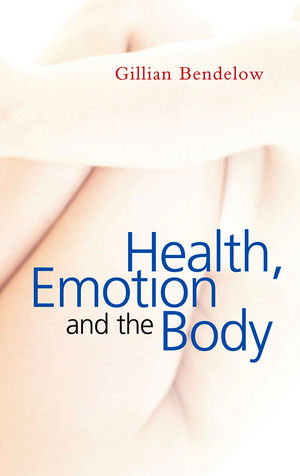Health, Emotion and The BodyISBN: 978-0-7456-3644-3
Paperback
224 pages
May 2009, Polity
 Other Available Formats: Hardcover
|
||||||
Sociology
"This comprehensive book critically examines contemporary models
of health and illness ... The book reminds us of the need to
consider the individual experience of illness while seeing each
person in his or her social context ... Of particular note is the
straightforward reminder that illness is a social and emotional
experience. The author reminds us that is the patient who should be
diagnosed, not merely the disease. 5/5"
Nursing Standard
"A cogent and intelligent account of the implications of
mind/body interactions for health."
Sociology of Health and Illness
"The quality of writing is high. Apart from the many case
histories used to illustrate the points being made, Professor
Bendelow gives many insightful observations on modern life and the
way in which medical practitioners are responding."
RoSPA Occupational Safety & Health Journal
"In this
insightful, timely, and engaging book, Gillian Bendelow takes a
fresh look at the relationship between physical and mental illness,
and their treatment. Positing stress as the key
to mind-body medicine, Bendelow’s analysis sheds much-needed
light on key issues from medically unexplained symptoms to the
surveillance implications of mind-body approaches. A must-read for
anyone interested in the social dimensions of medicine, Health, Emotion and the
Body charts the course to critical new areas of
inquiry."
Laura Carpenter,
Vanderbilt University
"Questions about
the relationship between bodies, lives and medicine preoccupy all
of us from time to time. In this accessible and very important
book, Gillian Bendelow takes us through the critical issues
underlying what medicine has to offer contemporary health problems.
She identifies a paradigm shift, in which dualistic mind-body
models and the dehumanizing and bureaucratic health care systems in
which these are often embedded, are now widely understood as
failing to provide any real understanding of how we live in and
experience our bodies. Her arguments should be read by all those
with an interest in humane health care (which is most of us,
whether practitioners, users or students). The book is an elegant
compendium of many different strands of thought, its conclusions a
compelling directive for a more integrated approach."
Ann Oakley, University of London



